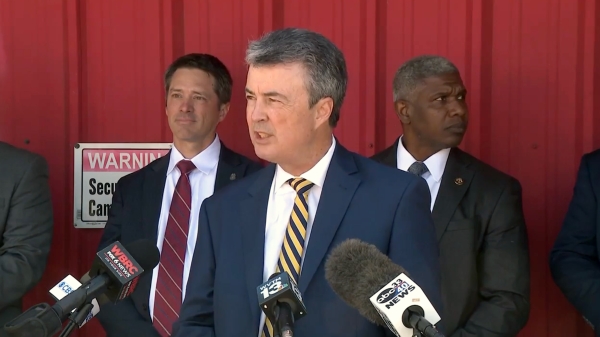By Chip Brownlee
Alabama Political Reporter
Alabama is suing one of America’s largest drug manufacturers for allegedely jeopardizing public health and safety through shoddy opioid marketing and sales practices.
Attorney General Steve Marshall announced the legal action Tuesday.
The AG’s Office filed the lawsuit against Purdue Pharma, Purdue Frederick Company Inc. and Rhodes Pharmaceuticals — which are collectively known as Purdue — for violating the Alabama Deceptive Trade Practices Act.
Purdue is one of the most active opioid makers, manufacturing brand names like OxyContin, MS Contin and Targiniq ER, along with other generic opioid drugs — all of which are at the center of a nationwide opioid epidemic.
“The opioid epidemic has devastated Alabama families, leaving a trail of addiction and death winding though every community of this state,” Marshall said.
The 71-page lawsuit filed by the state alleges that the company engaged in deceptive and inappropriate sales and marketing techniques for opioids that have endangered the welfare of Alabamians. Opioids is a class of highly addictive synthetic drugs that, much like heroin and fentanyl, is derviced from opium.
The complain places partial blame for Alabama’s opioid crisis on the shoulders of Purdue.
“Alabama’s opioid crisis has been, and is still being, fueled by pharmaceutical manufacturer Purdue, which has deceptively and illegally marketed opioids in order to generate billions of dollars in sales.”
Alabama ranks first in the nation for the number of opioid prescriptions per capita. Purdue, according to the AG’s Office, is the largest opioid marketer in the state and its product line relies heavily on opioids. Purdue Pharma has reportedly reaped more than $35 billion in revenues from OxyContin brandname alone.
An estimated 30,000 Alabama residents over age 17 are dependent upon heroin and prescription painkillers, according to the Alabama Department of Public Health. The drug death rate skyrocketed by 82 percent from 2006 to 2014 — with many of those deaths blamed on opioid painkillers and heroin.
“It will take years to undo the damage but an important first step we must take is to hold the parties responsible for this epidemic legally liable for the destruction they have unleashed upon our citizens,” Marshall said.
The lawsuit is currently being handled in the Federal Court for the Middle District of Alabama, but Marshall said Tuesday he expects the case to be transferred to an Ohio federal court when multidistrict legislation involving other states is consolidated.
Marhall’s lawsuit alleges that Purdue started a highly deceptive marketing campaign in the 1990s that was intended to “reverse the medical understanding of prescription opioids” by misrepresenting the risks and benefits of using opioids. Purdue is accused of targeting respected doctors to convince them to use opioids to treat chronic pain, telling those same doctors that opioids were not highly addictive — even though the drugs are some of the most addictive out there, and they knew it.
About 25 percent of those who are prescribed long-term prescription opioids become addicted and studies have shown that the use of the drugs over time can actually make pain and function worse, according to the Centers for Disease Control and Prevention.
More than 145 Americans die every day from opioid overdoses. In Alabama, more than 280 overdose deaths were attributed to opioids in 2015 alone, according to the Kaiser Family Foundation.
Gov. Kay Ivey in August named Marshall co-chair of the Alabama Opioid Overdose and Addiction Council, which was established to submit a strategic action plan to the governor by the end of last year that establishes recommendations for policy, regulatory and legislative actions to address the opioid crisis in the state.
That same council issued a 74-page action plan on December 31, 2017, which recommended better prescription tracking and increased treatment funding.
The state is seeking a court injunction and monetary damages.



















































